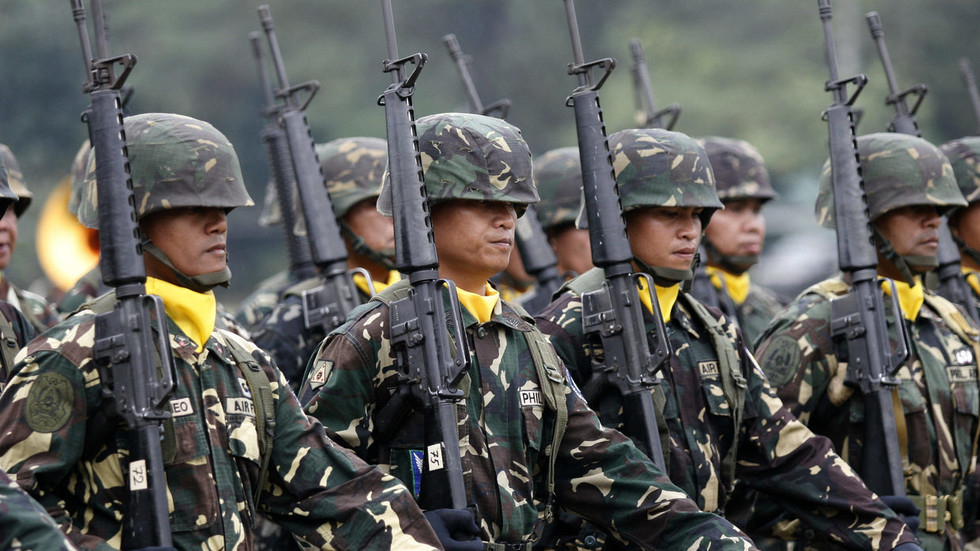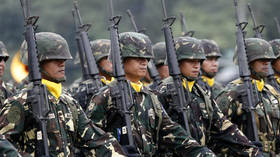
The country’s defense secretary warned that uploading personal photos onto an app that creates a “digital person” may pose a security risk

FILE PHOTO. Philippines troops. © LUIS LIWANAG / AFP
Apps that require users to upload their personal photos and then employ artificial intelligence to create a person’s digital clone are now off limits to Philippines military personnel, the country’s Department of National Defense has said. Defense Secretary Gilberto Teodoro Jr. warned that such apps could pose security risks.
On Friday, military officials confirmed the authenticity of a memo issued by Teodoro last week and circulating online in recent days. The department, however, stopped short of providing any further details regarding the ban.
In the memo, the defense secretary referred to an app that uses AI to create a “digital person that mimics how a real individual speaks and moves” after being fed ten photos of a user.

“This seemingly harmless and amusing AI-powered application can be maliciously used to create fake profiles that can lead to identity theft, social engineering, phishing attacks and other malicious activities,” Teodoro wrote, adding that he already knows of such cases.
The official urged his subordinates to exercise caution when sharing information online in general.
Last month, the US National Security Agency (NSA) and FBI issued a threat alert over ‘deepfake’ technology that could potentially be used to help breach computer systems in the military and other sensitive targets.
“The tools and techniques for manipulating authentic multimedia are not new, but the ease and scale with which cyber actors are using these techniques are,” NSA mathematician Candice Rockwell Gerstner said in a statement. She advised US companies to learn to detect deepfakes and develop a plan in case the technology is used against them.
Aside from businesses, American security agencies as well as the Pentagon and defense contractors are also at risk, the advisory warned.
Another dimension of the purported threat highlighted in the document is the concern that “synthetic media can also cause public unrest through the spread of false information about political, social, military or economic issues.”




